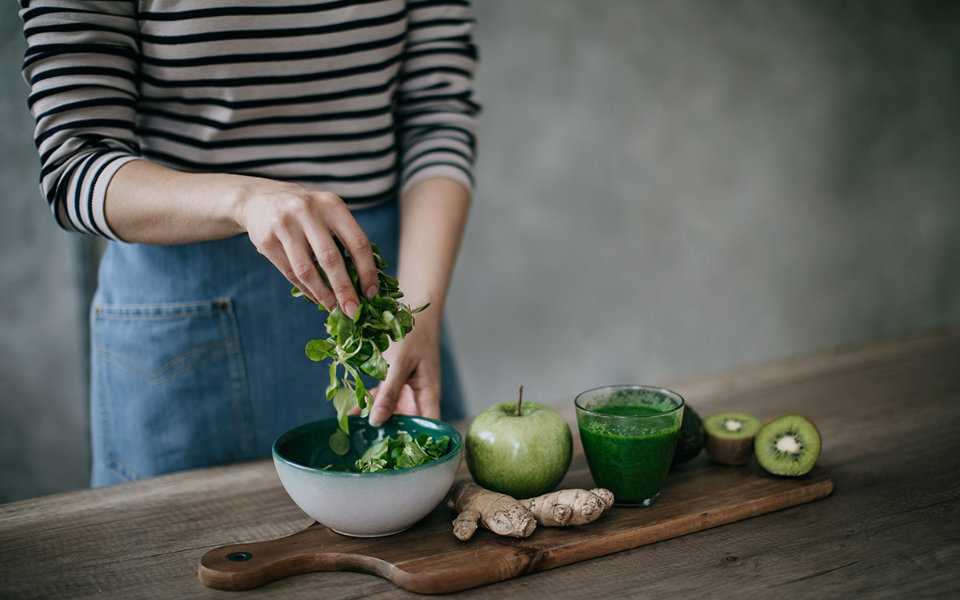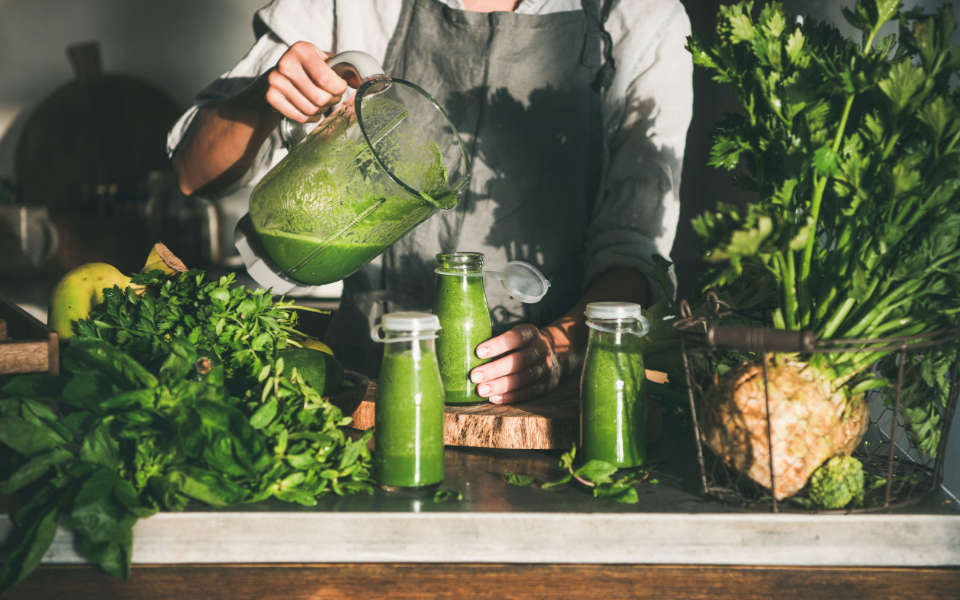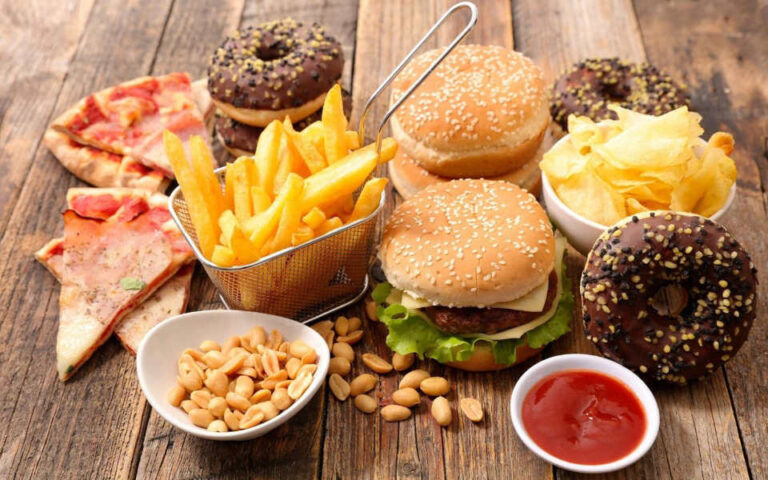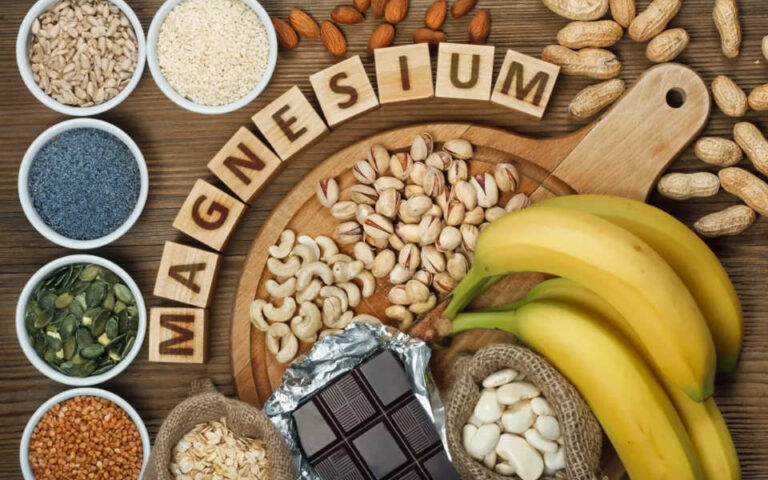There’re a lot of misconceptions regarding the concept of detoxing the body. First of all, the body already possesses organs that can eliminate toxins within. Organs capable of detoxing the body include the liver, kidneys, digestive system, lungs, and skin. Thus, claiming that detox practices could directly eliminate toxins from the body is erroneous. Instead, a detox practice that aligns with accepted scientific literature aims to support the organs that eliminate toxins. This way the aforementioned organs could detoxify the body efficiently.
In this post, we shall delve deeper as to what detox, what are its benefits, some side effects, and some tips on how to detoxing your body.
What is Detox
Our body has organs that are capable of eliminating toxins from our body. Organs with this function include the liver, kidneys, digestive system, lungs, and skin. Our goal is to follow certain practices so that the aforementioned organs can detoxify our bodies properly. These practices may include getting sufficient sleep, staying sufficiently hydrated, and even managing stress properly.
How to Detoxing your Body

1. Sufficient Sleep
As much as possible, get sufficient and quality sleep. Your body performs its maintenance when you go to sleep. So when you are well-rested, your organs can perform efficiently. This means your liver and kidneys, and all the other organs that are capable of eliminating toxins from the body can carry out the detoxification process properly.
Several studies have shown the relationship between sleep and kidney and liver function. In a research journal published in the European Respiratory Journal, results showed that excessive daytime sleepiness, restless leg syndrome, and apnoea-hypopnoea index, are risk factors for kidney glomerular function decline. In a separate study concerning liver function and adequate sleep, sleep disruption has been identified as a contributing factor to the pathogenesis of nonalcoholic fatty liver disease. These two studies indirectly demonstrated that sleep is important for the proper functioning of both the kidneys and liver; two organs whose major function is to remove toxins from our body.
2. Detoxing the Liver and Detoxing from Alcohol
The liver and the kidneys are the major detox organs. In other words, their main function is to process toxins within our body into less harmful forms for later excretion. Detoxing the liver and kidneys should be your top priority if your main goal is to optimize your natural detoxification process.
Detoxing from alcohol is a good start. When the liver is not busy processing alcohol, it could focus on detoxifying your body. Alcohol’s negative effect on our liver is common knowledge. However, one review which was published in The American Journal of Gastroenterology showed the magnitude of alcohol’s effect on the liver. According to this research paper, alcohol is a major risk factor for liver cirrhosis with risk increasing exponentially.
3. Sufficient Hydration
The average person requires 8 glasses of water per day. However, a more accurate computation of how much water you would need to drink in a day is as follows; your weight in kilograms multiplied by 65 millilitres per kilogram
(The maximum amount of water you can drink in a day = your weight in kilograms x 65 mL/kg).
This is for the upper limit and the lower limit is half of the upper limit
(The minimum amount of water you need to drink in a day = The maximum amount of water you can drink in a day / 2).
So if you weigh 90 kg the maximum amount of water you can drink in a single day is 5850 millilitres or 5.9 litres. The typical glass of water could hold up to 240 millilitres of water. This means your maximum is 24 glasses of water in a day. That’s 16 glasses more than the average. Your minimum water consumption would be half that which is 2925 millilitres or 2.9 litres which is about 12 glasses of water in a day. That’s 4 glasses more than the average.
A lot of people consider water to be capable of eliminating toxins. People who believe in water’s ability to remove toxins drink water a lot. Even though their rationale behind doing so is incorrect, the act of drinking enough water helps the body to carry out its natural detox processes. Detoxing skin is done by drinking sufficient water. As a bonus, the skin would become more elastic and firm as a result of proper hydration.
Detoxing for weight loss is possible when you drink enough water. According to a 2016 review, drinking enough water can aid in fat burning and fat loss.
4. Reduce Junk Foods and Highly Processed Foods
Junk foods are those types of foods that are either high in calorie or sugar or both but have little nutritional value. These types of foods have been linked to fatty liver disease which can weaken the liver’s capacity to carry out its detox functions. Some types of foods may not be considered junk foods because they are fortified with nutrients but they are still highly capable of introducing toxins to the body which may overburden our detox organs.
Observing a healthy diet that excludes junk and highly processed foods is highly beneficial for the chief detox organs, kidneys and liver. According to a literature review published in 2020, a healthy diet can reduce your risk of chronic kidney disease significantly. A separate study, concerning the liver this time, had similar findings. The liver would benefit greatly from a healthy diet. Results of the study implied that a diet that features a lot of vegetables and fruits and fewer red meats leads to a decreased risk of nonalcoholic fatty liver disease.
Eliminating junk foods and highly processed foods from your diet is not easy, especially if you’ve had the habit of eating these types of foods for a long time. The best way to minimize your consumption of junk foods and highly processed foods would be to gradually replace them with healthier alternatives. For example, you can replace your potato chips with kale chips, your french fries with baked carrot fries, your carbonated sugary beverage with sparkling water.
Another benefit of reducing junk foods and highly processed foods is weight loss. Since these foods contain a lot of sugar and calories, eating them would lead to weight gain. Doing the opposite, reducing your consumption of junk foods, would lead to weight loss. In essence, detoxing for weight loss could also be done by reducing the consumption of junk foods.
5. Consume a lot of Antioxidant-rich Foods
Antioxidants protect your cells from oxidative damage. Organs, including those that are responsible for eliminating toxins from your body, are made up of cells. Which means when the cells of the organs are protected from damage, the organ as a whole can carry out their function properly. With that said, if you want your detoxifying organs to be efficient, you must obtain sufficient antioxidants from your diet.
There are a lot of antioxidants out there, vitamins A, C, and E, selenium, and lycopene are just a few examples of many. These antioxidants are mostly present in fruits and vegetables.
Detoxing the colon is an added benefit to eating lots of fruits and vegetables. In a study published in the World Journal of Gastroenterology in 2017, researchers indicated that a high total intake of vegetables and fruits can significantly decrease the risk of colorectal cancer in both men and women.
6. Get as Much Probiotics and Prebiotics as Possible
Our gastrointestinal tract has a minor role in detoxifying our body. Even so, it is still a good idea to keep them healthy. With that said, the best way to keep the gut healthy would be to eat a balanced diet and to consume enough probiotics and prebiotics.
Probiotic foods are those type of foods that contain good bacteria. When you eat these types of food, you increase the number of bacteria in your gut that could aid digestion. To improve your gut health even further, you should consume more prebiotic foods. Prebiotic foods are high fibre foods that act as the good bacteria’s food source. Detoxing the colon could mean eating right and consuming sufficient probiotic and prebiotic foods.
Detoxing the Mind
There is a strong connection between the mind and the body. If the mind is in a chaotic state, it affects the efficiency of the body. This means an unhealthy state of mind could hamper your body’s natural detox processes. To detox the mind, you must get rid of sources of stress as much as possible. This means cutting relationships that you deem to be unhealthy for your state of mind. Another source of unnecessary stress is social media. Although it has its perks, reducing your social media usage could reduce your stress levels. Another thing that you could do with your social media account would be to unfollow people or pages that bring about negativity and toxicity. The mind to a certain extent reflects your surroundings. Organise and declutter your space to facilitate a healthy and balanced mind.

Benefits to Detoxing
Detoxing doesn’t necessarily detoxify the body, it helps keep the natural detoxification process within our body efficient. Besides that, those who follow a detox diet may experience fat loss and improved gut health.
There are several reasons why detox strategies can lead to weight loss. One detox strategy requires getting sufficient sleep. It is a known fact that getting sufficient sleep can make weight loss easier. Detox diets focus on low-calorie and nutritious foods. This makes weight loss easier as well. Moreover, detox strategies feature sufficient hydration. By drinking enough water for your weight, you make yourself feel full faster when you eat.
The improvement of gut health comes from eating whole, nutritious, and healthy foods that have lots of dietary fibres. Aside from that, Detox strategies promote the consumption of prebiotic and probiotic foods. Drinking enough water would also promote gut health.
Detoxing Side Effects
Detoxing is generally safe if done properly. However, please be advised by the following safety reminders and side effects.
1. Calorie Restriction
Be aware that detox diets may lead to severe calorie restriction. Most detox diets feature the consumption of low-calorie juices for an extended period of time. If you were to follow this diet, you may experience the side effects of sudden calorie deficit which may include:
- The fluctuation of blood sugar levels
- Breakdown of muscle
- Slowing down of metabolic processes
- Slowing down of mental processes
Those who have eating disorders, have blood sugar issues, and pregnant or lactating women should avoid detoxing due to its caloric restrictive nature.
2. Risk of Overdose
Another risk that comes with detox diets is the possible overuse of supplements, laxatives, diuretics, and even water. Be mindful of whatever supplement, laxative, and diuretic you are about to use or are currently using. Follow their recommended dosage.
Sufficient hydration varies from person to person. Although we established earlier that a person’s maximum water intake is 65 millilitres of water per their weight in kilograms; other factors may come into play. This level of hydration may be too much for some, which is why it is important to be aware of the following symptoms of overhydration:
- Nausea and Vomiting
- Headache
- Confusion or Disorientation
7-Day Detoxing Diet
Knowing the actual principles of detox we can make our own detox diet plan. Remember that your body possesses organs that carry out natural detox processes. What we are trying to achieve is to help these organs, primarily the liver and kidney, do their job efficiently. For this detox diet here’s what you’re going to do:
- Refrain from eating processed food
- Do not eat fried foods
- Go Vegan
- Do not drink coffee or any caffeinated beverages including some teas
- Go absolute zero added sugar
- Drink enough water
- Eat a lot of foods that are rich in dietary fibres
- Eat a lot of foods that are probiotic
- Drink juices that contain no added sugars and are low in calories
- Reduce your usual caloric intake by 75%
On top of that you should also:
- Take a week-long break, do not do this diet while working
- Get sufficient sleep
- Perform moderate physical activities for 30 minutes every day
- Perform activities that can help you de-stress
Detox Recipes

As a guide to what you can eat when you’re doing your week-long detoxing diet, here are some recipes that you should try:
1. Blueberry-Coconut Baked Steel Cut Oatmeal
Ingredients
- 260 grams or 1 1/2 cups of steel-cut Irish oats
- 0.88 grams or half a teaspoon of ground ginger
- 3 grams or half a teaspoon Himalayan salt
- 4 grams or one teaspoon baking powder
- 950 mL or 32 ounces or 4 cups of unsweetened vanilla almond milk (or just use regular almond milk and add vanilla later)
- 480 mL or 16 ounces or 2 cups of unsweetened coconut milk
- 240 grams or 1 1/2 cups of fresh blueberries (you can use frozen blueberries but do not thaw first)
- 47 grams or a quarter of a cup of unsweetened dried blueberries
- 22 grams or a quarter of a cup of unsweetened coconut flake
- You may use a natural sweetener such as honey if you want
Instructions
- Preheat the oven to 350 degrees Fahrenheit with the rack in the centre.
- While the oven is still heating up, lightly coat a 13x9x2-inch baking dish with cooking spray.
- Combine all ingredients in a large bowl adding blueberries and coconut last.
- Place the mixture in the baking dish and bake for about one hour. The oatmeal may appear uncooked when you take it out of the oven. Remove from the oven and let it cool to room temperature.
- For best results, place the cooked mixture in the refrigerator to thicken. However, you could eat it hot if you want.
- To create the blueberry sauce first you need to heat the blueberries with a splash of water over medium-high heat. When you hear them sizzle reduce heat to medium and cook for about 5 minutes until saucy. Mash the blueberries against the side of the pan with a spatula.
- Serve oatmeal with some almond or coconut milk and the blueberry sauce that you just made.
2. Vanilla Chia Pudding
Ingredients
- Chia seeds, it doesn’t matter what colour, black or white, although it would be more visually appealing if you mix the two in equal amounts
- Unsweetened plant milk (almond, coconut, oat, soy or your favourite non-dairy milk)
- Vanilla (use vanilla bean or ground vanilla)
Instructions
- Place chia seeds, almond milk, and vanilla in a container or bowl and mix well.
Stir twice. Place covered in the refrigerator and give a good mix after 5 and 10 minutes. Mixing just once or twice will do. Mixing is important since the seeds will fall to the bottom of the container if not shaken or stirred every now and then it won’t thicken and set properly.
- If you don’t plan to consume it immediately. Keep it refrigerated.
- You can add fruits for toppings. You can use mandarins, oranges, kiwi, raspberries, blueberries, blackberries, grapes, strawberries, pineapple, mango, banana, apples, peaches, granola, nuts, and seeds. You could also use a granola mix for toppings.
3. Roast Tomato and Orange Soup Recipe
Ingredients
- 900 grams of tomatoes, if they are a bit too large, cut them in half
- 20 grams or 2 cloves of finely chopped garlic
- 60 mL or 4 tablespoons of olive oil
- 340g or 2 medium-sized diced onions
- 61 grams or 2 medium-sized carrots peeled and diced
- 40 grams or 1 medium-sized celery stick diced
- 560 mL or 19 ounces of Hot vegetable stock
- 100ml orange juice
- The zest of 1 small orange, to serve
Instructions
- Before you do anything else, preheat the oven to 180ºC for a fan oven or to 160ºC for a gas oven
- While the oven is heating up, place the tomatoes on a large baking tray and scatter with the chopped garlic. Drizzle with 2 tablespoons of olive oil and season with salt and a grind or two of black pepper. Place this baking tray in the oven and roast its contents for 45 minutes, stirring once halfway through.
- After you’ve stirred the tomatoes, heat the remaining 2 tablespoons of olive oil in a large, deep-sided pan and cook the onions, carrots and celery over low heat for 20 minutes.
- Tip in the roasted tomatoes and garlic, add the vegetable stock and orange juice to the pan and give everything a good stir.
- Bring the soup to a simmer for a minute or two, then take it off the heat and allow it to cool slightly before liquifying the ingredients.
- Return the soup to the pan and check the seasoning, adding more salt and freshly ground black pepper to taste. If you’re serving it immediately, make sure it’s properly heated through.
- If you’re going to serve the soup cold, let it cool completely, pour into a large container and chill for a couple of hours in the fridge.
- Serve with a pinch of orange zest
4. Seven-veg Stir-fry Recipe
Ingredients
- 250g pack Thai rice noodles
- 1 to 2 tbsp groundnut oil
- 1 red pepper, deseeded and cut into thumb-length strips
- 2.5 cm or 1-inch piece of fresh ginger root, peeled and cut into slivers
- 8 baby sweetcorn, cut in half lengthwise
- 2 medium carrots, peeled and cut into batons
- 8 asparagus tips
- 100g or three and a half-ounce of mini sugar-snap peas or mangetout, or normal-sized ones, halved lengthways
- 4tbsp sweet chilli dipping sauce or hoisin sauce
- 1 red chilli, deseeded and finely chopped, optional
- 2 heads pak choi, quartered lengthways
- 100g or 150g pack fresh beansprouts, depending on pack size available
- 4 to 6 spring onions, trimmed and thinly sliced
- A handful of mint, roughly chopped
- A handful of coriander leaves, roughly chopped
- Soy sauce, to serve
Instructions
- Put the noodles in a large bowl and pour over enough boiling water to cover. Leave for 5 mins while you cook the vegetables.
- Add 1tbsp of oil to a hot wok or large frying pan and stir-fry the red pepper and ginger for half a minute. Add the sweetcorn, carrots and asparagus and stir-fry for a minute, then add the sugar snaps, or mangetout, and cook for another minute.
- Mix in the chilli dipping or hoisin sauce and 4tbsp water, then add the red chilli, if using, the pak choi, beansprouts and spring onions, and cook for a couple of minutes.
- Drain the noodles. Toss with mint and coriander. Serve topped with stir-fried vegetables and soy sauce for seasoning.
5. Pomegranate, Raspberry and Banana Smoothie Recipe
Ingredients
- 100g or 4oz raspberries
- 1 medium-sized banana, sliced
- 125g raspberry and vanilla soy yoghurt alternative
- 300ml or half a pint of pomegranate juice
Instructions
To make this superfood recipe, put the raspberries, banana, raspberry and vanilla yoghurt and pomegranate juice together in a blender. Turn on the blender and blend all the ingredients until you get a smooth consistency. Pour into two glasses and serve.
6. Blueberry and Kiwi Smoothie Recipe
Ingredients
- 2 kiwi fruit
- 150g or 5oz of blueberries,
- 10 separate blueberries that will be used for decoration
- 2tbsp low-fat natural yoghurt
Instructions
- Peel and roughly chop the kiwi.
- Place the kiwi in a blender or food processor with the blueberries, and yoghurt
- Blend until smooth.
- Serve decorated with the reserved blueberries.
Wrap Up
People may have misconceptions regarding detox strategies. The widely held belief that detox strategies are responsible for removing toxins from our body is incorrect. In actuality, detox strategies merely improve the pre-existing natural detox processes within our body. Nonetheless, detox strategies’ positive effects are undeniable that is why it is beneficial for our body to undergo detox from time to time.
To undergo detox you need to get sufficient sleep, refrain from alcohol, avoid unhealthy processed foods, consume a lot of antioxidants, consume probiotics and prebiotics, and stay sufficiently hydrated. Stress management is another important aspect of detox. Our mental state has a significant effect on how our organs function. So on top of removing toxins from your body, you must remove toxicity from your relationship with people as well.
When you undergo detox, you will experience an overall improvement in health. Most notably, you will lose weight and would have a healthy gastrointestinal system. Despite offering several benefits, detox strategies may have side effects as well since you are more likely to experience a severe calorie deficit. Aside from that, you run the risk of overdose from laxatives, supplements, and even water. Through careful planning, a healthy detox can be carried out which will lead to positive effects for your body with minimal or even no side effects.


